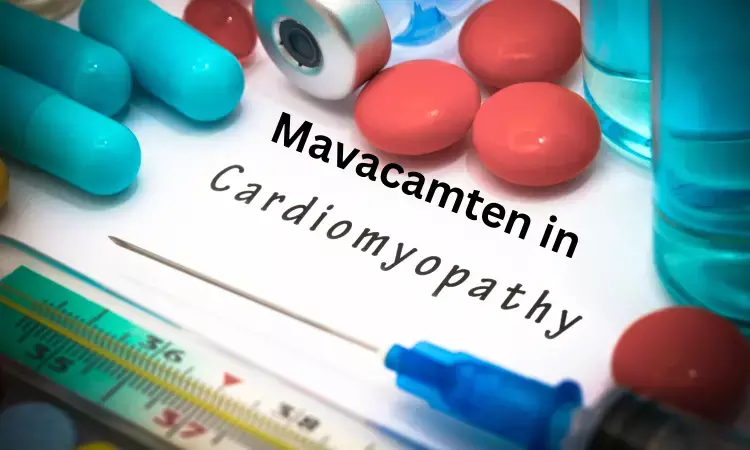- Home
- Medical news & Guidelines
- Anesthesiology
- Cardiology and CTVS
- Critical Care
- Dentistry
- Dermatology
- Diabetes and Endocrinology
- ENT
- Gastroenterology
- Medicine
- Nephrology
- Neurology
- Obstretics-Gynaecology
- Oncology
- Ophthalmology
- Orthopaedics
- Pediatrics-Neonatology
- Psychiatry
- Pulmonology
- Radiology
- Surgery
- Urology
- Laboratory Medicine
- Diet
- Nursing
- Paramedical
- Physiotherapy
- Health news
- Fact Check
- Bone Health Fact Check
- Brain Health Fact Check
- Cancer Related Fact Check
- Child Care Fact Check
- Dental and oral health fact check
- Diabetes and metabolic health fact check
- Diet and Nutrition Fact Check
- Eye and ENT Care Fact Check
- Fitness fact check
- Gut health fact check
- Heart health fact check
- Kidney health fact check
- Medical education fact check
- Men's health fact check
- Respiratory fact check
- Skin and hair care fact check
- Vaccine and Immunization fact check
- Women's health fact check
- AYUSH
- State News
- Andaman and Nicobar Islands
- Andhra Pradesh
- Arunachal Pradesh
- Assam
- Bihar
- Chandigarh
- Chattisgarh
- Dadra and Nagar Haveli
- Daman and Diu
- Delhi
- Goa
- Gujarat
- Haryana
- Himachal Pradesh
- Jammu & Kashmir
- Jharkhand
- Karnataka
- Kerala
- Ladakh
- Lakshadweep
- Madhya Pradesh
- Maharashtra
- Manipur
- Meghalaya
- Mizoram
- Nagaland
- Odisha
- Puducherry
- Punjab
- Rajasthan
- Sikkim
- Tamil Nadu
- Telangana
- Tripura
- Uttar Pradesh
- Uttrakhand
- West Bengal
- Medical Education
- Industry
Mavacamten new hope for patients with symptomatic obstructive hypertrophic cardiomyopathy

Hypertrophic cardiomyopathy (HCM) is a myocardial disorder clinically characterized by left ventricular (LV) hypertrophy which is usually inherited. People with HCM are likely a 50% chance of having the genetic mutation, which in most cases is reported to be caused, by variants in the genes encoding sarcomeres.
In a recent study evaluated the clinical benefits of mavacamten for Chinese patients with symptomatic obstructive hypertrophic cardiomyopathy and found that they were consistent with previous data; mavacamten offers a new option for an underrepresented population for whom there is an important unmet medical need.
In this phase 3 randomized clinical trial of 81 patients, mavacamten significantly improved Valsalva left ventricular outflow tract obstruction compared with placebo and was well tolerated. New York Heart Association functional class, health status, cardiac biomarkers, and cardiac structure were also improved. The study is published in JAMA Cardiology.
Mavacamten is a first-in-class, selective, reversible, allosteric inhibitor of β-cardiac myosin, inhibits the binding of cardiac myosin to actin and reduces the number of actin–myosin cross bridges. Mavacamten has shown clinical benefits in global studies for patients with obstructive hypertrophic cardiomyopathy (oHCM), however not much is known in the Asian population.
The trial was a randomized, double-blind, placebo-controlled clinical trial was conducted at 12 hospitals in China. Between January 4 and August 5, 2022, patients with oHCM and a left ventricular outflow tract (LVOT) gradient of 50 mm Hg or more and New York Heart Association (NYHA) class II or III symptoms were enrolled and received treatment for 30 weeks. Patients were randomized 2:1 to receive mavacamten (starting at 2.5 mg once daily) or placebo for 30 weeks. The primary end point was change in Valsalva LVOT peak gradient from baseline to week 30. Left ventricular outflow tract gradients and left ventricular ejection fraction (LVEF) were assessed by echocardiography, while left ventricular mass index (LVMI) was determined by cardiac magnetic resonance imaging. Analysis was performed on an intention-to-treat basis.
The key findings of the study are
• A total of 81 patients (51.9 years; 58 men [71.6%]) were randomized. Mavacamten demonstrated a significant improvement in the primary end point compared with placebo.
• Similar trends were demonstrated for resting LVOT peak gradient (LSM difference, −55.0 mm Hg; 95% CI, −69.1 to −40.9 mm Hg).
• At week 30, more patients receiving mavacamten than placebo achieved a Valsalva LVOT peak gradient less than 30 mm Hg (48.1% vs 3.7%), less than 50 mm Hg (59.3% vs 7.4%), and NYHA class improvement (59.3% vs 14.8%).
• Greater improvements were also observed with mavacamten regarding the Kansas City Cardiomyopathy Questionnaire Clinical Summary Score.
• N-terminal pro-B-type natriuretic peptide level (proportion of geometric mean ratio, 0.18), high-sensitivity cardiac troponin I level (proportion of geometric mean ratio, 0.34).
• LVMI (mean difference, −30.8 g/m2; 95% CI, −41.6 to −20.1 g/m2). Safety and tolerability were similar between mavacamten and placebo. No patients experienced LVEF less than 50%.
Researchers concluded that “Mavacamten significantly improved Valsalva LVOT gradient vs placebo for Chinese patients. All secondary efficacy end points were also improved. Mavacamten was well tolerated with no new safety signals. This study supports the efficacy and safety of mavacamten in diverse populations, including Chinese patients.”
Reference: Tian Z, Li L, Li X, et al. Effect of Mavacamten on Chinese Patients With Symptomatic Obstructive Hypertrophic Cardiomyopathy: The EXPLORER-CN Randomized Clinical Trial. JAMA Cardiol. Published online August 28, 2023. doi:10.1001/jamacardio.2023.3030.
MSc. Neuroscience
Niveditha Subramani a MSc. Neuroscience (Faculty of Medicine) graduate from University of Madras, Chennai. Ambitious in Neuro research having worked in motor diseases and neuron apoptosis is interested in more of new upcoming research and their advancement in field of medicine. She has an engrossed skill towards writing and her roles at Medical dialogue include Sr. Content writer. Her news covers new discoveries and updates in field of medicine. She can be reached at editorial@medicaldialogues.in
Dr Kamal Kant Kohli-MBBS, DTCD- a chest specialist with more than 30 years of practice and a flair for writing clinical articles, Dr Kamal Kant Kohli joined Medical Dialogues as a Chief Editor of Medical News. Besides writing articles, as an editor, he proofreads and verifies all the medical content published on Medical Dialogues including those coming from journals, studies,medical conferences,guidelines etc. Email: drkohli@medicaldialogues.in. Contact no. 011-43720751


